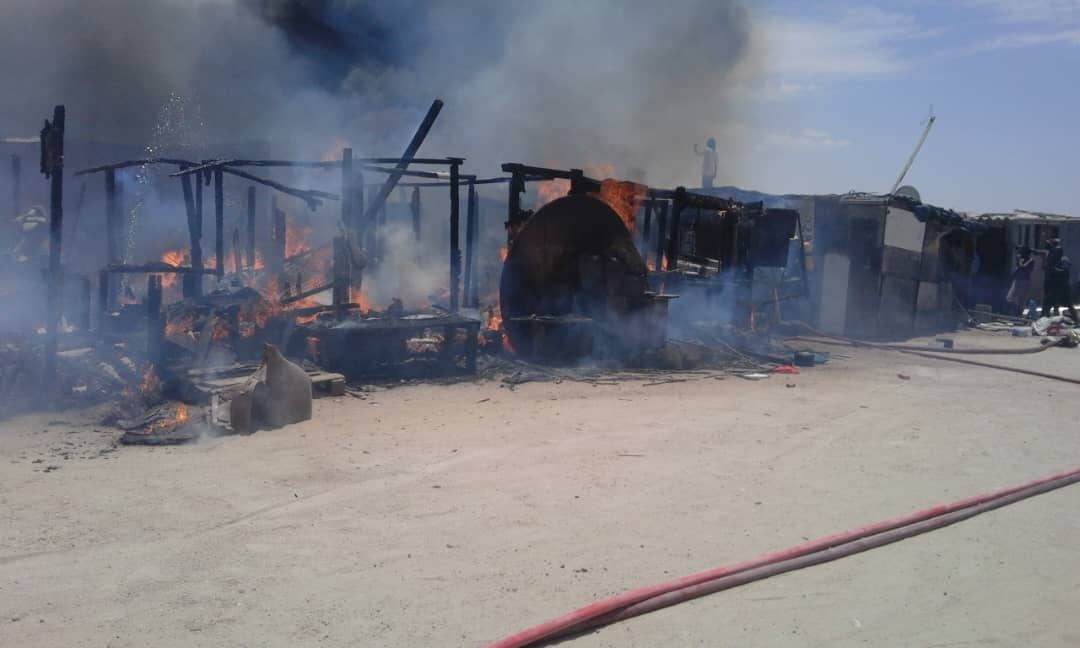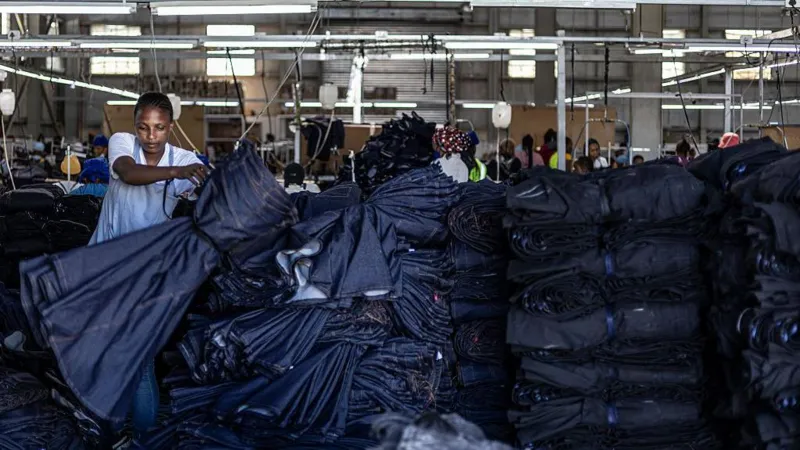AN independent test of the water quality at Opuwo has shown that the town’s water supply is unfit for human consumption in more than half the cases tested.
The Namibian last month sent six samples of water from Opuwo to an independent laboratory in Windhoek. Of these, three were classified as Group D – high risk – according to the Department of Water Affairs’ guidelines for evaluating drinking water.The guidelines state that in the case of water being classified in Group D, “urgent and immediate attention is required to reduce the levels of the problem constituents in the water to sustainable levels”.These samples were found to contain excessive amounts of bacteria, and two of the samples were found to be very turbid.Turbidity refers to the cloudiness of the water, explains Analytical Laboratory Services Quality Manager Silke Ruegheimer, and could be caused by various substances suspended in the water.Two of the samples were classified as Group C – low risk – and the final sample was classed in Group B – good quality water.The tests were conducted at Analytical Laboratory Services in Windhoek.Opuwo residents have in the past refused to pay for their water because of the poor quality.This led to the Town Council owing bulk water supplier NamWater more than N$500 000, and the town’s water supply was reduced to only two hours a day.The Council has complained that the high lime content of the water was blocking pipes, making it difficult for the hospital to keep its machines running, while residents had to constantly replace their geysers, taps and kettles.The Deputy Chairperson of the Council’s Management Committee, Gert Tjipeuja, told The Namibian last month that even after replacing most of the underground pipes in 1999, the lime in the water was still causing blockages and pipe bursts.All of the water samples collected by The Namibian showed high levels of magnesium and calcium, which cause scaling in plumbing and heating appliances.Five of the six samples were shown to have high magnesium and high sulphate levels.According to Ruegheimer, magnesium together with sulphate can cause diarrhoea in people with sensitive stomachs or who are not used to the water.Both elements give water a bitter taste.”Local people do drink the water,” said Western Muharukua, Manager at Ohakane Lodge, where one of the samples classified as Group D was taken.”But newcomers, and even those who leave Opuwo and come back after a while can experience diarrhoea,” he told The Namibian.NamWater and the Opuwo Town Council have since come to an agreement whereby NamWater took over water management at the town.NamWater Corporate Communications Manager Johannes Shigwedha told The Namibian that the town’s water supply has been restored and that the parastatal is looking for around N$12 million to set up a water treatment plant there.”This is not a problem that can be solved in the short term,” he said, adding that the specifics of the proposed plant are still under discussion.Meanwhile, residents who had been collecting water from a broken NamWater pipeline no longer have this option open to them.NamWater has fixed this pipe, according to Opuwo Town Clerk Libertus Mbaumba.The pipe supplies water to the Road Construction Company (RCC), which is building a paved road between Opuwo and Omakange.Community members used to fill their water jugs from three breaks in the pipe, which sprayed water into the veld 24 hours a day.Mbaumba said on Monday that residents who were still without water because of a lack of pipes and taps were making use of a project started by 10 church leaders.Thanks to donations by the embassies of the US, UK and Finland, the churches have set up five water tanks, and are charging residents N$2 for 25 litres of clean drinking water.The money is then used to pay NamWater to keep the tanks filled.* The analysis of the water samples were carried out according to the required specifications on how the samples should be taken, stored and transported.Of these, three were classified as Group D – high risk – according to the Department of Water Affairs’ guidelines for evaluating drinking water.The guidelines state that in the case of water being classified in Group D, “urgent and immediate attention is required to reduce the levels of the problem constituents in the water to sustainable levels”.These samples were found to contain excessive amounts of bacteria, and two of the samples were found to be very turbid.Turbidity refers to the cloudiness of the water, explains Analytical Laboratory Services Quality Manager Silke Ruegheimer, and could be caused by various substances suspended in the water.Two of the samples were classified as Group C – low risk – and the final sample was classed in Group B – good quality water.The tests were conducted at Analytical Laboratory Services in Windhoek.Opuwo residents have in the past refused to pay for their water because of the poor quality.This led to the Town Council owing bulk water supplier NamWater more than N$500 000, and the town’s water supply was reduced to only two hours a day.The Council has complained that the high lime content of the water was blocking pipes, making it difficult for the hospital to keep its machines running, while residents had to constantly replace their geysers, taps and kettles.The Deputy Chairperson of the Council’s Management Committee, Gert Tjipeuja, told The Namibian last month that even after replacing most of the underground pipes in 1999, the lime in the water was still causing blockages and pipe bursts.All of the water samples collected by The Namibian showed high levels of magnesium and calcium, which cause scaling in plumbing and heating appliances.Five of the six samples were shown to have high magnesium and high sulphate levels.According to Ruegheimer, magnesium together with sulphate can cause diarrhoea in people with sensitive stomachs or who are not used to the water.Both elements give water a bitter taste.”Local people do drink the water,” said Western Muharukua, Manager at Ohakane Lodge, where one of the samples classified as Group D was taken.”But newcomers, and even those who leave Opuwo and come back after a while can experience diarrhoea,” he told The Namibian.NamWater and the Opuwo Town Council have since come to an agreement whereby NamWater took over water management at the town.NamWater Corporate Communications Manager Johannes Shigwedha told The Namibian that the town’s water supply has been restored and that the parastatal is looking for around N$12 million to set up a water treatment plant there.”This is not a problem that can be solved in the short term,” he said, adding that the specifics of the proposed plant are still under discussion.Meanwhile, residents who had been collecting water from a broken NamWater pipeline no longer have this option open to them.NamWater has fixed this pipe, according to Opuwo Town Clerk Libertus Mbaumba.The pipe supplies water to the Road Construction Company (RCC), which is building a paved road between Opuwo and Omakange.Community members used to fill their water jugs from three breaks in the pipe, which sprayed water into the veld 24 hours a day.Mbaumba said on Monday that residents who were still without water because of a lack of pipes and taps were making use of a project started by 10 church leaders.Thanks to donations by the embassies of the US, UK and Finland, the churches have set up five water tanks, and are charging residents N$2 for 25 litres of clean drinking water.The money is then used to pay NamWater to keep the tanks filled.* The analysis of the water samples were carried out according to the required specifications on how the samples should be taken, stored and transported.
Stay informed with The Namibian – your source for credible journalism. Get in-depth reporting and opinions for
only N$85 a month. Invest in journalism, invest in democracy –
Subscribe Now!










